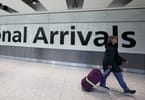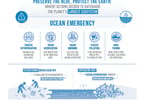ROME – Michael O’Leary has been called a lot of things, not all of them polite. The 47-year-old chief executive officer of Ryanair, the biggest and most successful low-cost airline in Europe, maybe the world, has been called a bully, a feral capitalist, a showman and a braggart. Now some think the Irishman is suicidal. In the face of the first expected losses since the airline went public 10 years ago, he is doing what almost no other carrier is doing: He is dropping ticket prices.
One analyst called Ryanair’s plan to reduce fares by an average of 5 per cent even as it predicted a €60-million ($96-million) loss for the year “an unmitigated disaster.” Another said the fall in Ryanair’s yields were “quite worrying” as high fuel prices clobber profits throughout the industry.
Indeed, airlines typically don’t deviate from the old formula when rising costs eliminate profits: Reduce capacity and raise prices, and do so in a hurry. That is exactly what British Airways, one of Ryanair’s main competitors, has in mind. “This is the worst trading environment the industry has ever faced and fares are likely to go up as we reduce some winter capacity and cope with unprecedented oil prices,” BA boss Willie Walsh said on Aug. 1 as he unveiled a 90-per-cent fall in profits.
Ryanair is following the first part of the formula but not the second. Shareholders obviously don’t approve. When Ryanair predicted a loss, the airline’s market value dropped by more than a fifth.
A few days later, on Aug. 4, the shares hit a 52-week low of €2.19, a 62-per-cent plunge from their high. On paper, Ryanair is not half the airline it used to be.
What does Mr. O’Leary know that no other airline boss knows? Probably nothing. In truth, he didn’t even have the wisdom to hedge fuel prices as oil galloped past $100 (U.S.) a barrel and went to about $140, a mistake that cost Ryanair a fortune. The airline’s fuel bill is now almost 50 per cent of operating costs, up from 36 per cent not long ago.
But Mr. O’Leary knows, or thinks, he can win the war of attrition that is already under way (he’s fond of the last-man-standing scenario; in 2006, his horse “War of Attrition” won the Cheltenham Gold Cup). In spite of its profit plunge, Ryanair, whose business plan is more or less a clone of Southwest Airlines’ plan and WestJet’s by extension, has a killer balance sheet, a comfortable store of cash and a supremely confident boss who is willing to sacrifice short-term value creation for long-term growth.
His strategy is to carpet bomb his weaker competitors. As they burn on the runway, he plans to nab their routes, their landing slots, their airports. This is exactly what Ryanair did last year, when flying zombie Alitalia all but abandoned Milan’s Malpensa airport. Within days of Alitalia’s move out, Ryanair moved in.
This strategy, of course, in not new in itself. Southwest has used it to considerable success in the United States. But its potential for success is far higher in Europe for the simple reason that airlines conveniently go out of business faster there.
In the United States, companies unable to pay their bills can opt for Chapter 11 bankruptcy protection and operate for months, even a year or longer, while they hammer out debt restructuring plans with creditors. The technique is used, some say abused, with alacrity by the airlines. Carriers that should be grounded stay airborne, hurting the profitable airlines.
In Europe, the sickly are given far less time to produce viable business plans. As a result, they disappear more quickly, much to the delight of the survivors. Already a dozen or so small European airlines have collapsed or have been merged out of existence; Alitalia, alive only because of state subsidies, could easily be next.
Mr. O’Leary himself predicts only five European airlines can survive the economic downturn made worse by high fuel prices: Air France-KLM, British Airways (which is trying to merger with Spain’s Iberia), Lufthansa, Ryanair and its main low-cost rival easyJet.
Another reason the carpet-bombing technique could work better is that Europe and the Mediterranean offer far better growth opportunities than the saturated North American market. Countries like Bulgaria, Libya and Turkey are coming alive, expanding their airports and encouraging foreign carriers to deliver them a steady stream of tourists and business people.
What some analysts see as a suicide mission, Mr. O’Leary sees as a tactical growth strategy, where nuisance competitors are eliminated and new routes added. To prove he’s serious about beating competitors while they’re down, Ryanair is advertising a September sale – £10 tickets from its British airports to dozens of European destinations (it also promises no fuel surcharges).
Will it work? It’s impossible to say, because no airline has a business plan that will allow it to survive a high-fuel-cost, low-GDP-growth environment forever. Ryanair’s gamble is that the high fuel prices and the downturn will be fairly short-lived – but long enough to destroy lesser rivals.
There is little doubt that Mr. O’Leary will test the patience of his investors as his airline drops fares and suffers losses. But the crazy Irishman may have found a business model that works in any economic condition.
WHAT TO TAKE AWAY FROM THIS ARTICLE:
- The 47-year-old chief executive officer of Ryanair, the biggest and most successful low-cost airline in Europe, maybe the world, has been called a bully, a feral capitalist, a showman and a braggart.
- In the face of the first expected losses since the airline went public 10 years ago, he is doing what almost no other carrier is doing.
- One analyst called Ryanair’s plan to reduce fares by an average of 5 per cent even as it predicted a €60-million ($96-million) loss for the year “an unmitigated disaster.






















